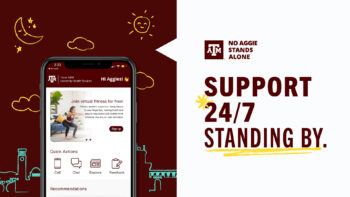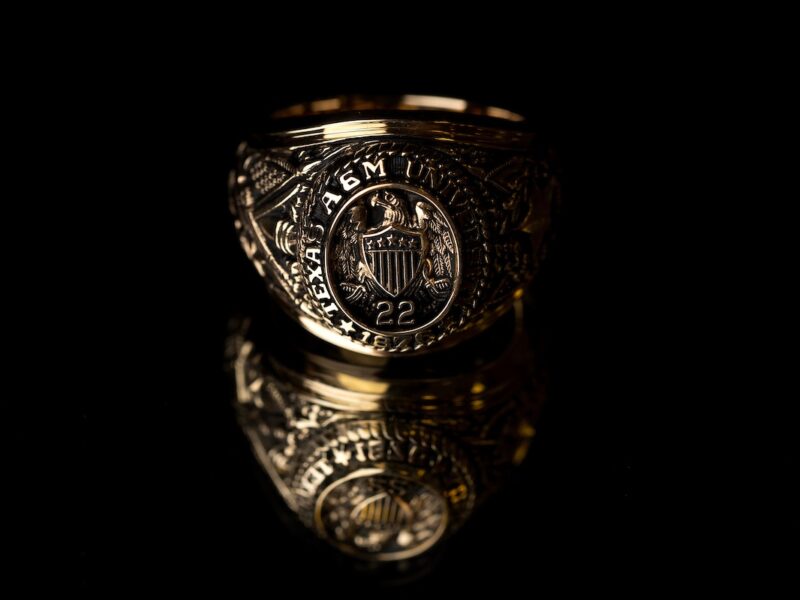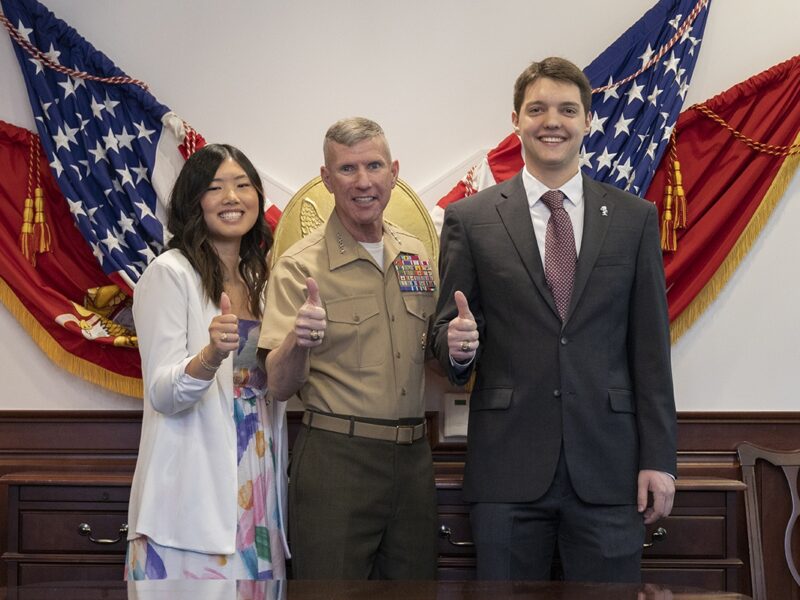When It Comes To Mental Health, ‘No Aggie Stands Alone’

It’s easy to feel alone, even in a crowd. That’s one of the messages Texas A&M University has for its students and employees on this World Mental Health Day.
Today, Texas A&M kicks off its “No Aggie Stands Alone” campaign, bringing people and resources together to help ensure that the mental health of the university community is at the top of everyone’s mind.
Named for the beloved 12th Man tradition of standing together to support the team, the campaign serves as a reminder to all campus members — students, faculty and staff — that Aggies support one another.
Find help at mentalhealth.tamu.edu.
Prioritizing mental health is vital, and the university offers extensive resources to do just that. The newly updated Mental Health Resources site points users to help via call, text or chat “24/7, 365” with the TELUS Health Student Support App, plus a variety of local and national crisis resources, links to group and individual counseling, workshops and more.

For employees, the Division of Human Resources and Organizational Effectiveness (HROE) has the Employee Assistance Program, offering a variety of services, including access to counseling for employees and dependents. Additionally, the university’s employee wellness program, Living Well, hosts events, lists free exercise classes, offers help with healthy eating and quitting tobacco, and more.
Dr. Nancy Fahrenwald, associate vice president for University Health Services, said keeping mental health at the forefront of our thinking is key.
“It helps reduce stigma and emphasizes the importance of self-care,” she said. “Our own personal well-being and that of the people we live, work and study with, should be our number one priority.”
Self-Care Comes In Many Varieties
Fahrenwald encourages everyone to find ways throughout the day to take care of themselves, whether that means making an appointment at the counseling center, taking a walk through Aggie Park or watching a video on mindfulness.
“These are what we call ‘upstream interventions’ — things we can do every day to make sure we don’t get to the point of crisis,” she said. “Getting enough sleep, eating healthy foods, having meaningful social engagements, pursuing success in work and academics, and engaging in spiritual pursuits. It’s OK to take a break and stop those spinning thoughts.”
And remember, she said, if you are in crisis, there is strength in asking for help.

“You can talk to friend or family member if that helps, that’s great,” she said. “Or if you want to talk to someone confidentially — someone who has no skin in the game — help is available through therapy, emergency care or medications.
“We seek health care when we have the flu or a broken bone — mental health care is like any other health care.”
Get Involved
Aggies can help themselves and others by getting involved in mental health efforts on campus. Anyone can take a Green Dot Bystander Intervention Training class or a Step In Stand Up session and learn skills to prevent violence and help trauma survivors. If you’re a student, you can become a HelpLine volunteer, providing support and information to fellow Aggies by phone.
Or, Fahrenwald said, you can just check in on a friend, co-worker or family member, and be there for them when they are feeling down or stressed. “Sometimes, just reaching out and letting someone know you care, that’s the best thing you can do,” she said.
Looking Forward
Fahrenwald notes we’ve all shared trauma over the last few years, in addition to challenges in our own lives.
“Let’s look through the windshield, not the rearview mirror,” she said. “That’s why the rearview mirror is smaller.
“Aggies are resilient, we can bounce back and we can thrive. We care about each other and that’s what makes us so special.”
Media contact: Lesley Henton, lshenton@tamu.edu





